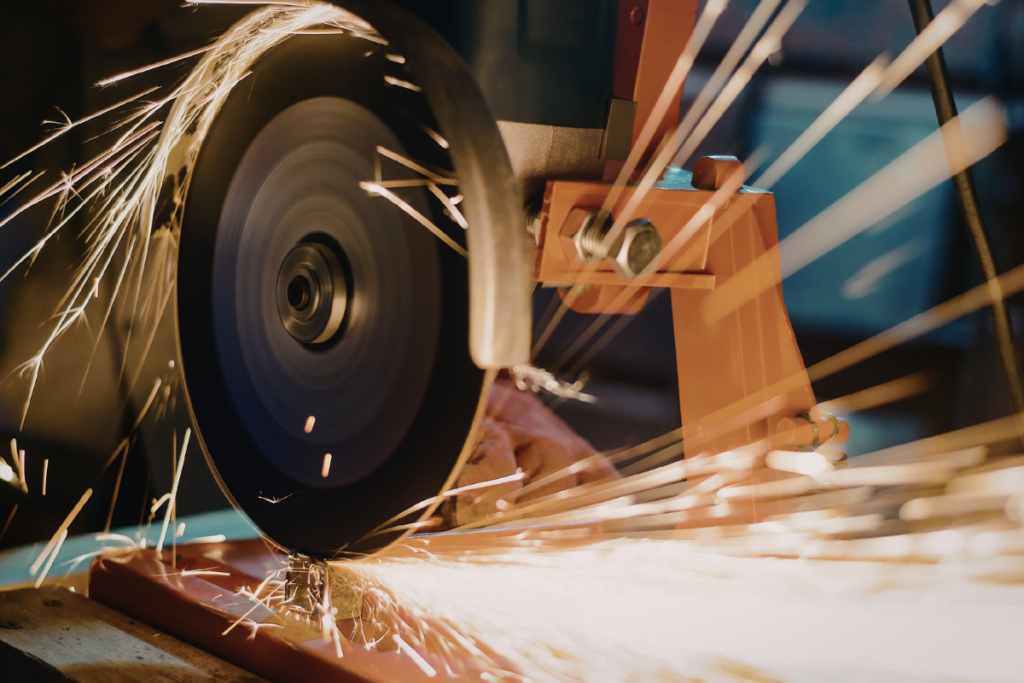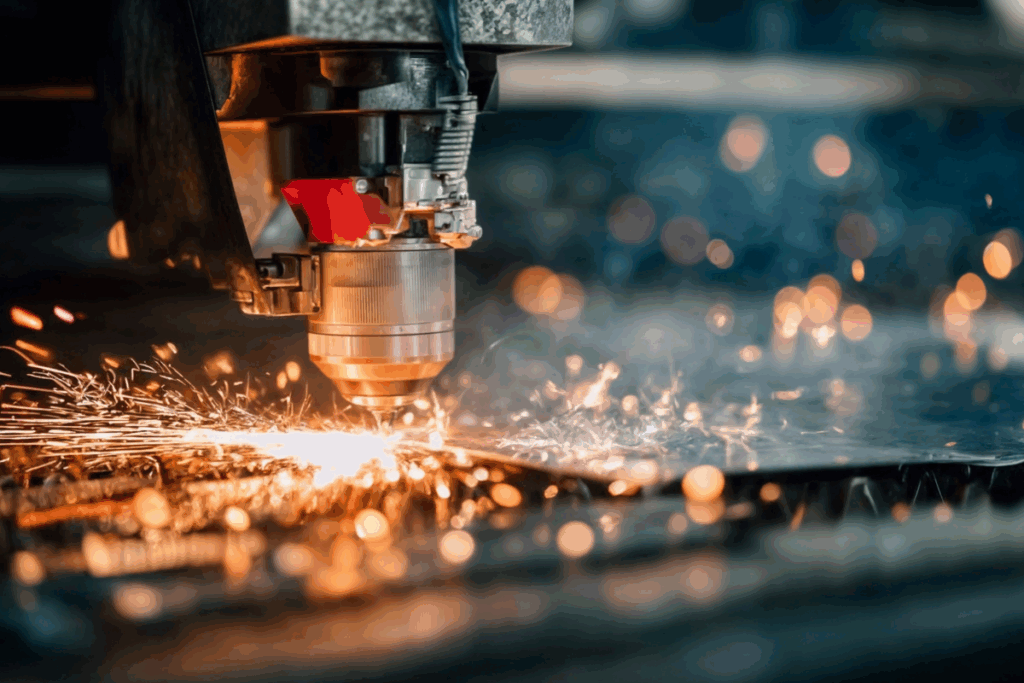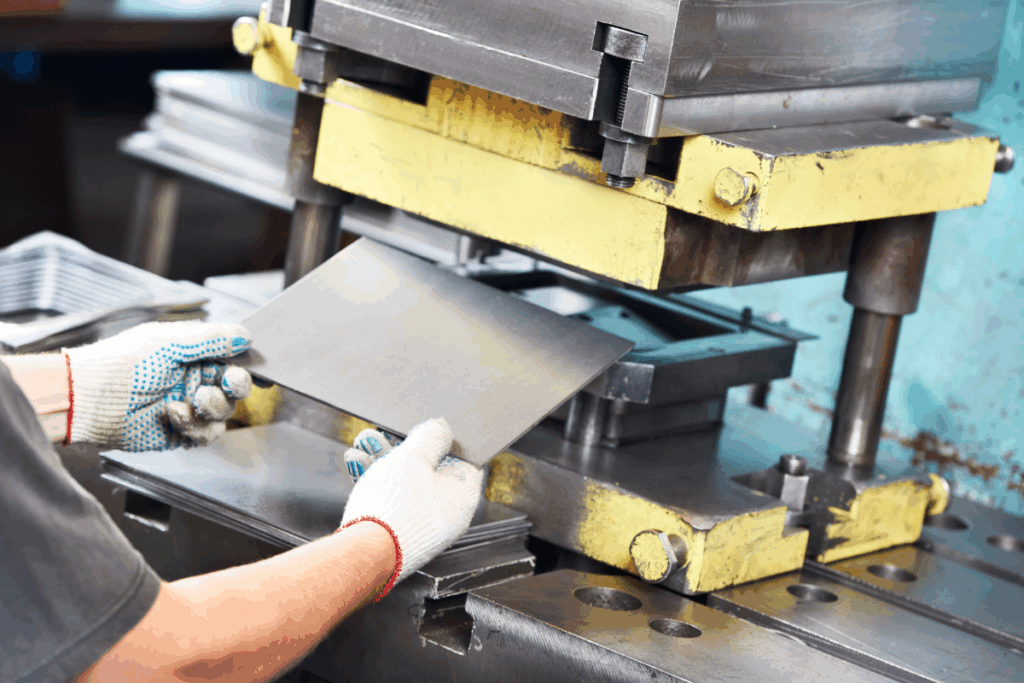Over the last several centuries, industrial revolutions have transformed how manufacturers build things. From steam-based manufacturing machines to mass-production assembly lines, our industry has thrived on innovation, making the manufacturing process more efficient while enhancing the quality of fabricated goods.
With the digital age comes a new tech revolution, called Industry 4.0, that builds upon traditional machining and fabrication techniques, creating cost-optimization opportunities for manufacturers without sacrificing product performance, reliability, or quality.
At AC Fabrication & Assembly Solutions, we uphold a longstanding tradition of embracing technology to create better products for our customers. That’s why we integrate Industry 4.0 components, such as artificial intelligence and robotics, into our everyday manufacturing operations.
Artificial Intelligence (AI) That Optimizes Metalworking Operations
It seems like AI is permeating almost every aspect of society these days. However, AI is truly making its mark in metalworking by helping production facilities optimize their processes.
For example, AI is increasingly becoming crucial for maintaining consistent quality control. AI-generated algorithms can power image recognition technology that inspects and analyzes products at various stages of the production process. These sensors can see into complex geometries and small areas that are often invisible to the human eye, helping to detect irregularities or deviations from the original design and prompting immediate corrective measures.
Without AI-powered quality control, deviations are often detected later in the production process, resulting in material waste and production delays.
Additionally, AI can utilize big data to create machine learning algorithms that fuel predictive analytics. Many metalworking facilities utilize them to forecast future trends, such as when a machine is likely to break down or require maintenance, allowing engineers to schedule maintenance during non-peak periods or between projects. This also helps fabricators avoid mid-production tool failure that can trigger work stoppages and costly downtime.
Robotic Technology’s Role In Precision Machining
For decades, people have predicted “the rise of the machines”, a scenario in which robots would be integrated into manufacturing to replace human workers.
Well, they were only half-right. Robots have certainly become a critical part of precision machining, however, they’re designed to help humans, not replace them.
One of the robot’s primary roles is to assist with complex tasks that can be dangerous or strenuous for humans, helping to minimize the risk of workplace accidents and injuries and reducing the physical strain on humans that can result from performing specific duties. Enhancing production floor safety through robotics also helps us attract and retain top meatworking talent, ensuring we produce the highest quality products for our customers.
Robots perform many tasks with increased efficiency, enabling the manufacturing process to continue uninterrupted, without the need for breaks or downtime. Meanwhile, skilled human talent can work alongside the robots or be reallocated to less repetitive, high-value tasks.
For example, machine-tending robots can load materials into a machine, such as a lathe, grinder, mill, or machine table, and unload them again once processing is finished.
Welding robots can be programmed to perform a wide range of welding techniques, including arc, spot, laser, MIG, TIG, plasma, and more, delivering increased quality, efficiency, and consistency in the results. They can also help extend the life of consumable tools through tasks such as cleaning welding wires at regular intervals, reducing replacement frequency, supporting predictive tool life analytics, and optimizing costs.
Specialized collaborative robots, known as cobots, work side-by-side with human welders to help boost productivity. One method of working with cobots is to have the welder demonstrate the welding technique using the cobot’s arm. The cobot’s “brain” will simultaneously save the information for when the part goes into production. The human welder and the cobot can then double production by working in parallel.
Material-removal robots undertake subtractive metalworking tasks, including cutting, sanding, grinding, polishing, and deburring parts, ensuring reliable and consistent accuracy, repeatability, and quality while enhancing production floor safety. These processes, which can be dangerous for human workers, are programmed through CNC technology that provides the robot with instructions based on detailed 3D CAD drawings, enabling the robot to follow every edge, surface and contour of the workpiece with unparalleled precision.
Robots can also be programmed to carry out several simple finishing and packaging tasks, such as inspecting, washing, sorting, and packaging completed parts, supporting around-the-clock processing and delivering finished products to the customer faster.
Read More: What’s The Difference Between MIG And TIG Welding
Access Modern Metalworking Technology With The Agricultural Equipment Manufacturers At AC Fabrication & Assembly Solutions
With over 300 years of combined experience delivering high-quality, end-to-end solutions to global OEMs, we understand the importance of adopting innovations to help our customers reach their production goals.
We utilize modern technology to improve quality, enhance efficiency, and get products to our customers sooner, keeping them competitive in a tightening marketplace. We’ll continue to invest in new technology as it becomes available, ensuring that we consistently support your projects with the latest innovations.
Read More: The Role Of Robotics In Welding And Metal Fabrication
Partner With AC Fabrication & Assembly Solutions On Your Next Metalworking Project
Our integrated project development process ensures complete collaboration with our customers, helping us deliver high-quality products that maximize profitability and growth potential.
Contact an AC Fabrication and Assembly Solutions expert at 204-952-1900 or sales@acfabandassembly.com for a custom quote on your next project today!



